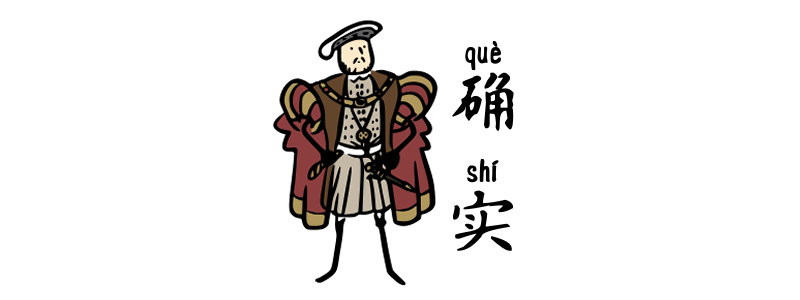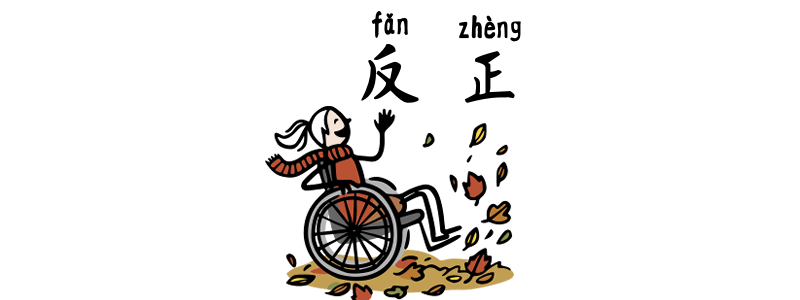Grammar Point:The Chinese word 從來从来 cónglái means “always.” It is used to indicate that something has been true or consistent throughout a period of time. Structure S + 從來从来 cónglái + 都 dōu In this structure, you do not add negation words like 不 bù or 没 méi to indicate the negative form. 成功chénggōng從來cónglái都dōu要yào靠kào努力nǔlì成功chénggōng从来cónglái都dōu要yào靠kào努力nǔlìSuccess always…
Category: HSK 3
“Never” in Chinese – cónglái
Grammar Point:The word “Never” in Chinese can be translated as 從來从来 cónglái. It is used to indicate that something has not happened at any time in the past or will not happen in the future. Structure S + cónglái + 不 bù + V In casual speech, 從來从来 cónglái can be shortened to just 從从…
Appearance with kànqǐlái and kànshangqu
Grammar Point:In Chinese, both 看起來来 kànqǐlái and 看上去 kànshàngqùshangqu are expressions used to describe how something appears or looks. They are often employed in similar contexts, with subtle differences in their usage. Ps. In my opinion, 看起來来 kànqǐlái is more commonly used in casual conversation, while 看上去 kànshàngqùshangqu more frequently appears in written forms. However,…
“Once” in Chinese 1 – céngjīng
Grammar Point:The Chinese word 曾經曾经 céngjīng means “once” or “ever” and is used to describe something that happened or a condition that existed in the past. It conveys the idea of a past experience or a previous state. Structure S + céngjīng + 是 or 在 or 有 他tā曾經céngjīng是shì一位yíwèi有名yǒumíng的de醫生yīshēng他tā曾经céngjīng是shì一位yíwèi有名yǒumíng的de医生yīshēngHe was once a famous doctor. 這裡zhèlǐ曾經céngjīng是shì醫院yīyuàn,…
Already in Chinese 2 – yǐ and zǎoyǐ
Grammar Point:In Chinese, 已 yǐ and 早已 zǎoyǐ both convey a sense of “already.” However, 早已 zǎoyǐ specifically emphasizes that something has been done or occurred a long time ago or well in advance. Structure 已 yǐ 已 yǐ is a shorter form of 已經经 yǐjīng and is often used in formal or written language….
“Originally” in Chinese – běnlái
Grammar Point:The Chinese word 本來来 běnlái is an adverb that is used to indicate the original of something, and it’s often translated as “originally,” “initially,” or “origin.” Structure S + běnlái + V 他tā本來běnlái是shì一名yìmíng工程師gōngchéngshī, 後來hòulái轉行zhuǎnxíng當dāng老師lǎoshī他tā本来běnlái是shì一名yìmíng工程师gōngchéngshī, 后来hòulái转行zhuǎnxíng当dāng老师lǎoshīHe was originally an engineer but later switched to become a teacher. 你nǐ本來běnlái打算dǎsuàn去qù哪裡nǎlǐ度假dùjià? 你nǐ本来běnlái打算dǎsuàn去qù哪里nǎlǐ度假dùjià? Where did you originally plan to…
“Indeed” in Chinese 1 – quèshí
Grammar Point:The word 確實确实 quèshí in Chinese is an adverb that means “indeed” or “truly.” It is often used to emphasize the truth or accuracy of a statement. Structure S + 確實确实 quèshí + Statement 他tā確實quèshí很hěn聰明cōngmíng他tā确实quèshí很hěn聪明cōngmíngHe is indeed very intelligent. 我wǒ確實quèshí不bù喜歡xǐhuān他tā我wǒ确实quèshí不bù喜欢xǐhuan他tāI truly do not like him. 我wǒ確實quèshí沒méi收到shōudào你的nǐde錢qián我wǒ确实quèshí没méi收到shōudào你的nǐde钱qiánI indeed did not receive your money. 確實quèshí有yǒu這zhè件jiàn事shì确实quèshí有yǒu这zhè件jiàn事shìThere is…
“Please” in Chinese – qiānwàn
Grammar Point:The Chinese word 千萬万 qiānwàn is an idiomatic expression that is often used to convey a sense of urgency, or strong advice. It can be translated in different ways depending on the context, but it generally carries the idea of “please” in English. Structure Qiānwàn + Neg + V When someone uses 千萬万 qiānwàn…
“Any” in Chinese – rènhé
Grammar Point:The Chinese word 任何 rènhé is a common phrase used in the language and can be translated to “any” or “whatever” in English. Structure 任何 rènhé + N + (都) 沒想到méixiǎngdào你nǐ和hé十年shínián前qián一模一樣yìmóyíyàng沒有méiyǒu任何rènhé改變gǎibiàn没想到méixiǎngdào你nǐ和hé十年shínián前qián一模一样yìmóyíyàng没有méiyǒu任何rènhé改变gǎibiànI didn’t expect that you haven’t changed at all in the past ten years. 我wǒ明天míngtiān都dōu在zài家jiā, 所以suǒyǐ任何rènhé時間shíjiān都dōu歡迎huānyíng你nǐ來lái我wǒ明天míngtiān都dōu在zài家jiā, 所以suǒyǐ任何rènhé时间shíjiān都dōu欢迎huānyíng你nǐ来láiI’ll be at home all day tomorrow, so…
“Anyway” in Chinese – fǎnzhèng
Grammar Point:The Chinese word 反正 fǎnzhèng is an adverb that is commonly used in spoken language and informal writing. It is similar to the English word “anyway,” but not exactly the same. Structure 反正 + Reason The difference between English and Chinese is that 反正 fǎnzhèng always needs a reason with it, unlike English where…









